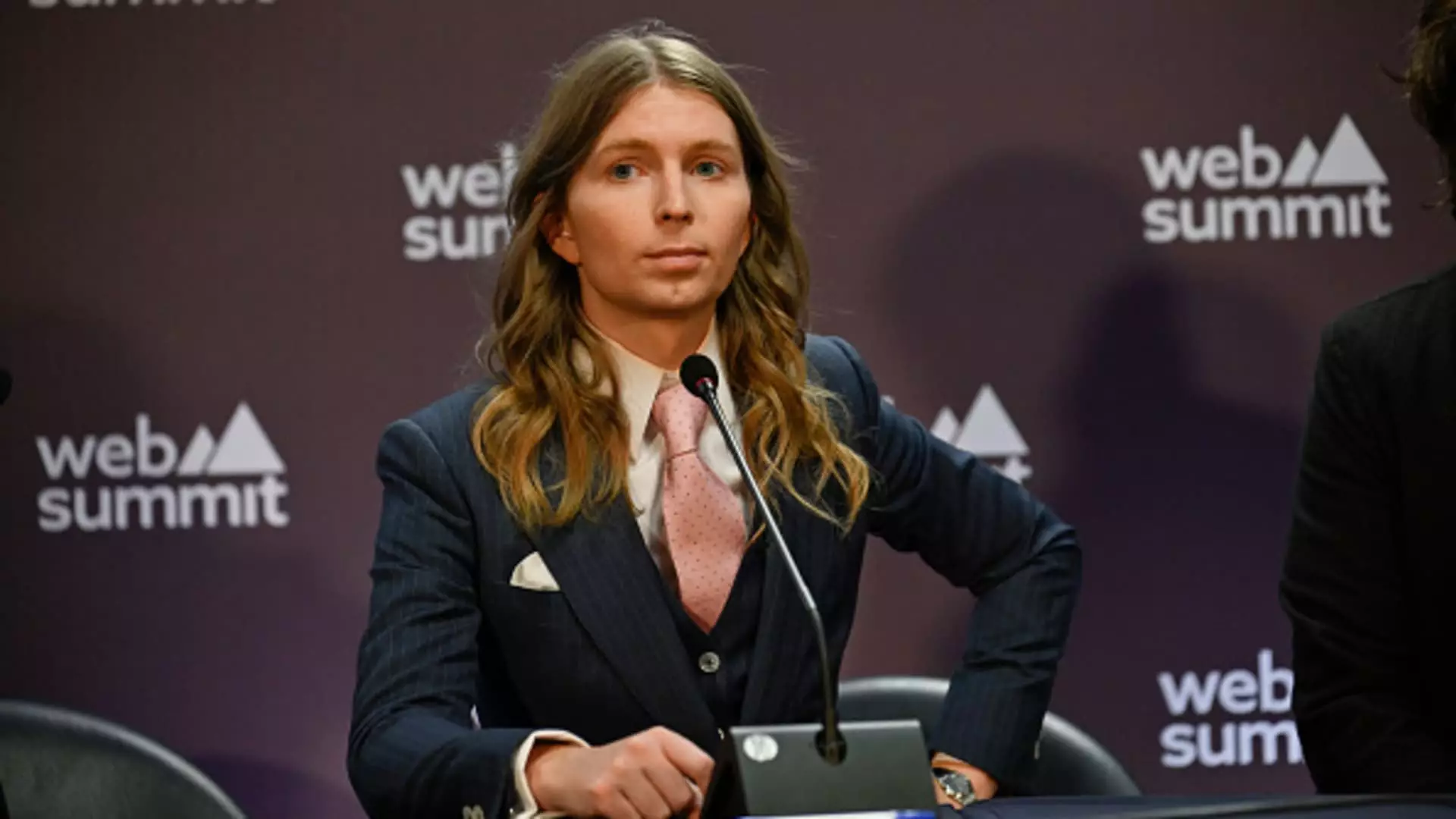In a world increasingly dominated by digital communication, the issue of censorship has emerged as a formidable challenge. Chelsea Manning, a former U.S. Army intelligence analyst, recently spoke at the Web Summit in Lisbon, Portugal, highlighting the persistent threat that censorship poses in today’s society. The precarious balance between freedom of expression and the regulation of online content continues to spark vigorous debates, particularly among technology executives who voice concerns over content moderation. In an era where the power dynamics of information dissemination are shifting, Manning advocates for a shift towards a more decentralized internet as a strategic solution to these systemic issues.
Manning’s perspective emphasizes that censorship today is not merely an action taken by state actors but has evolved into a complex interplay of algorithms and social media engagement, where certain content is prioritized or marginalized based on invisible criteria. This raises important questions regarding transparency and accountability in the digital realm. The essence of the argument hinges on the identification of who wields the power to censor and for what purposes, effectively making censorship a nuanced issue that transcends traditional boundaries.
Decentralization: A Path Toward Empowerment
Manning’s proposal for decentralized identification makes a compelling case for empowering individuals to reclaim authority over their personal data. By advocating for a structure that allows users to control their digital footprints, she envisions a scenario where online privacy is no longer contingent upon the goodwill or policies of tech giants. This decentralization mirrors the internet’s early days when a more distributed model fostered greater openness and accessibility.
In her discourse, Manning acknowledges the apprehensions surrounding the business models that underpin this new paradigm. She suggests that a revised social contract is paramount for tech companies to successfully navigate a decentralized landscape while still remaining profitable. This progressive concept challenges companies to rethink their roles and responsibilities regarding how information is shared and monetized.
Manning, notably a whistleblower herself, draws attention to the evolving nature of information accessibility and its implications for individuals who dare to expose wrongdoing. The sheer volume of data available today presents both opportunities and challenges; while information is more democratic and widespread than ever, the difficulty lies in discerning fact from fiction. As governments increasingly shift their focus towards spreading misinformation, the lines between transparency and obscurity blur, complicating the whistleblower’s journey.
In today’s context, distinguishing between credible sources and disinformation has become paramount. Manning contends that the contemporary landscape is no longer a straightforward battle of secrecy versus transparency; instead, it involves navigating an ocean of competing narratives and unverifiable claims. The growing problem of misinformation fosters a climate of uncertainty that endangers the mission of whistleblowing.
The centralization of information and the monopolistic tendencies of tech companies contribute to the challenges of censorship, according to Manning. Social media platforms have created ecosystems that prioritize engagement over genuine discourse, curating content based on algorithms that often prioritize sensationalism. This reality not only skews public perception but also reinforces existing power structures that marginalize dissenting voices.
Manning’s critique of these dynamics compels a reconsideration of how technology intersects with our civil liberties. In advocating for a return to earlier, more decentralized models of the internet, she highlights the potential to foster an environment where free expression can flourish without undue interference. The very fabric of online interaction could be rewoven to prioritize user autonomy above corporate interests.
The discussions surrounding the future of the internet, censorship, and individual rights reveal the complexities of living in an interconnected world. Chelsea Manning’s insights serve as a crucial reminder that as technology evolves, so must our understanding of privacy, accountability, and governance in the digital realm. A decentralized internet, guided by principles of transparency and user autonomy, may hold the key to mitigating censorship and reshaping the narrative around information access in the 21st century. Ultimately, the responsibility to advocate for these changes lies not just with tech leaders but collectively with the global community as we strive to create a digital landscape that honors both freedom and security.



Leave a Reply